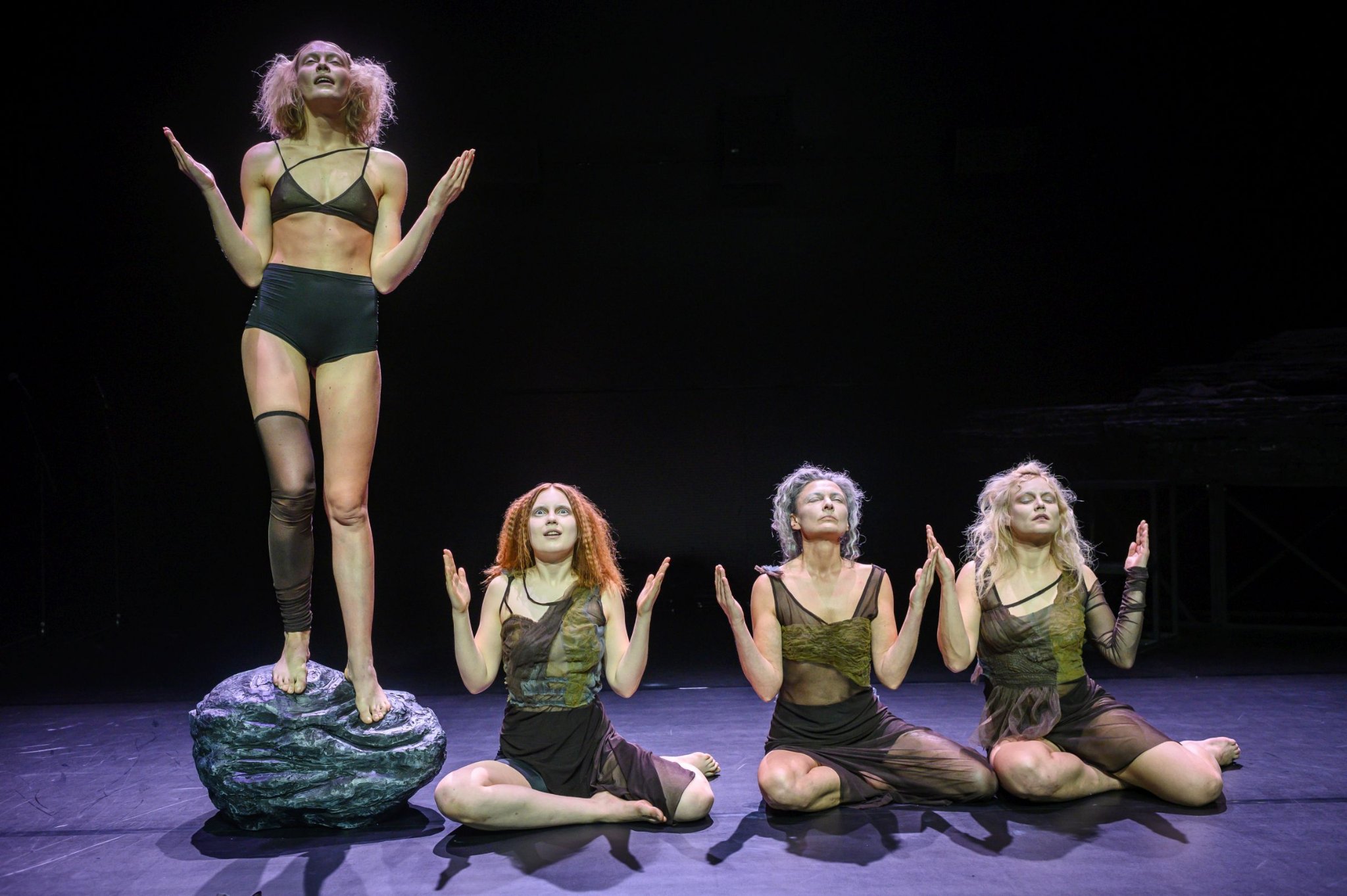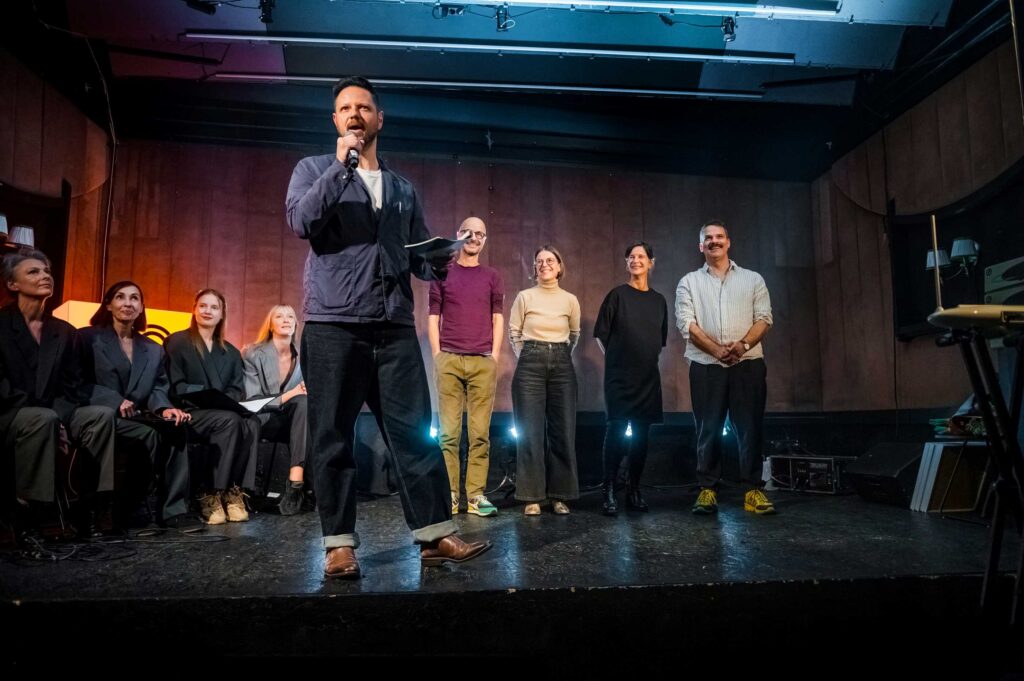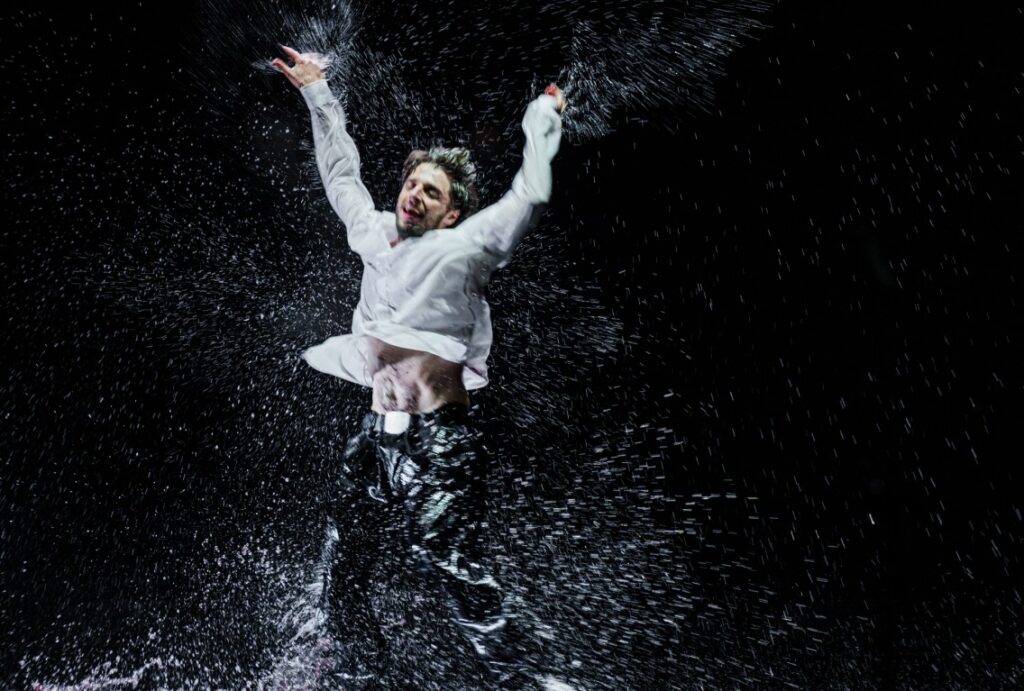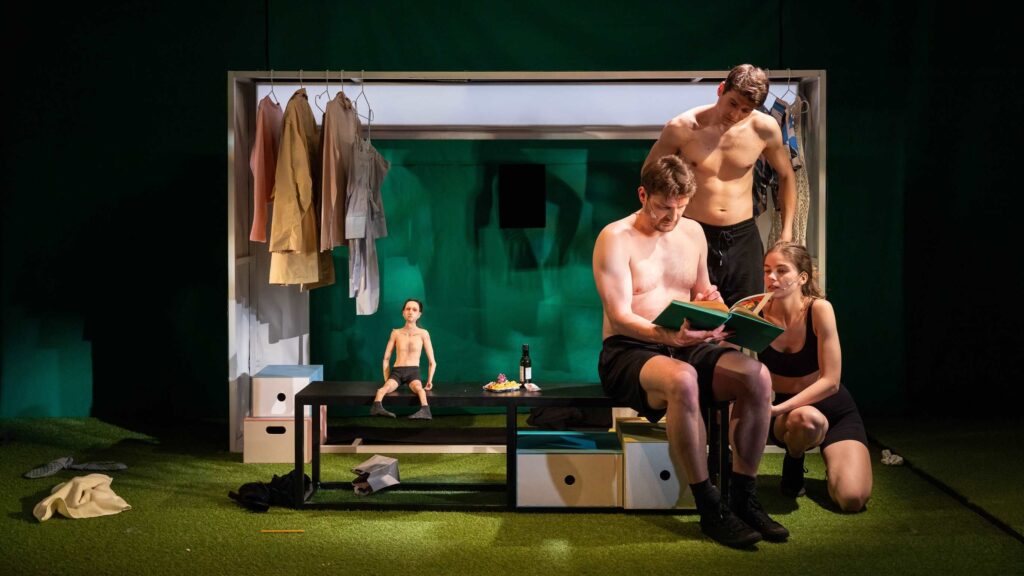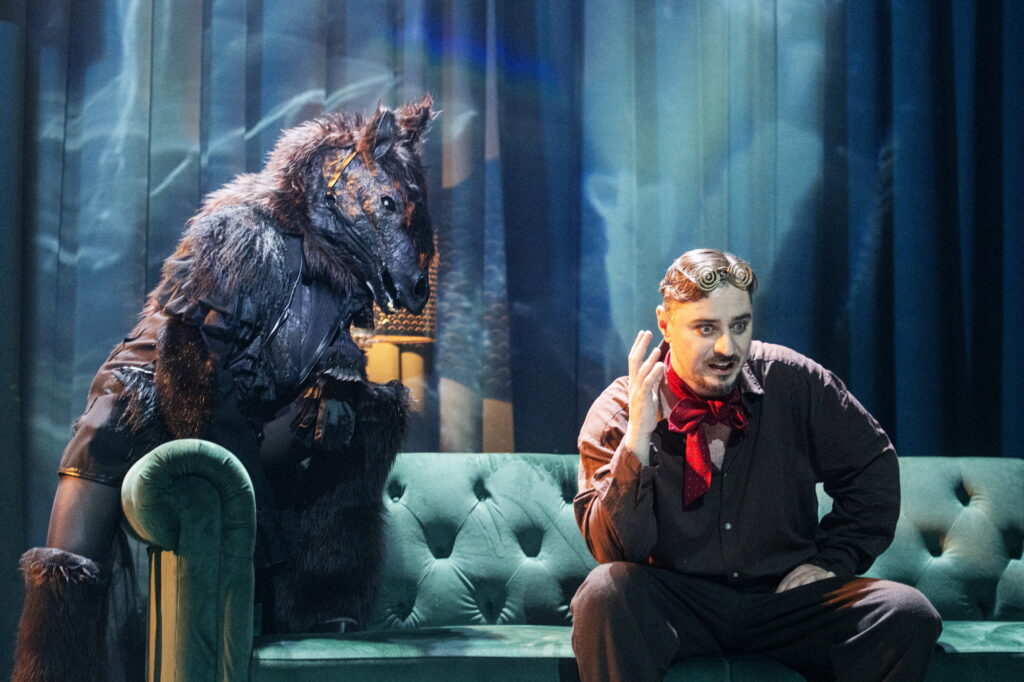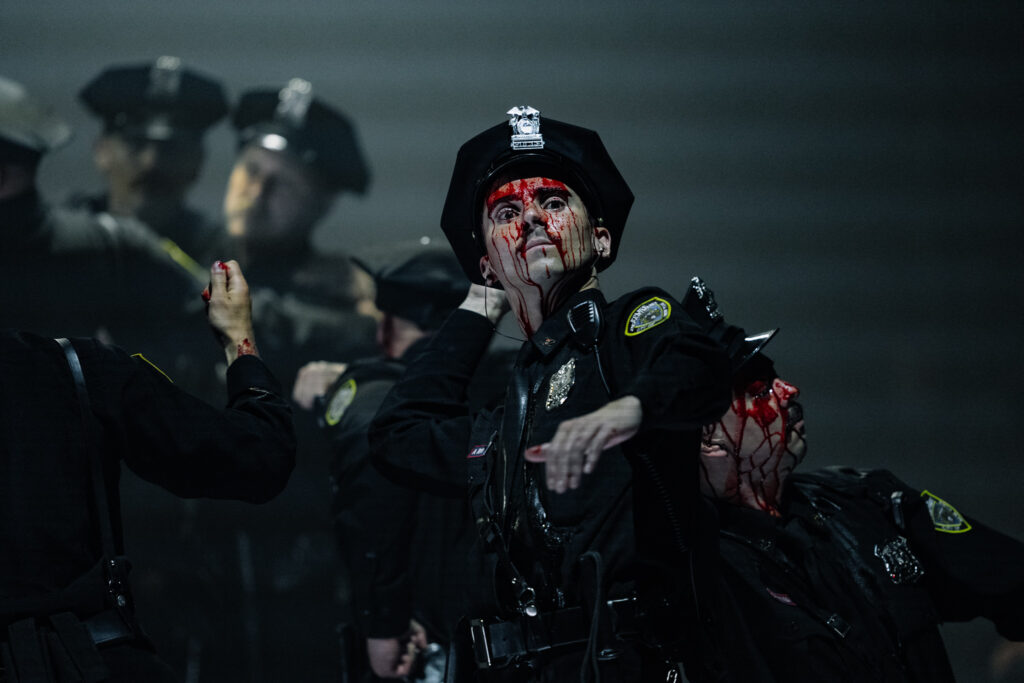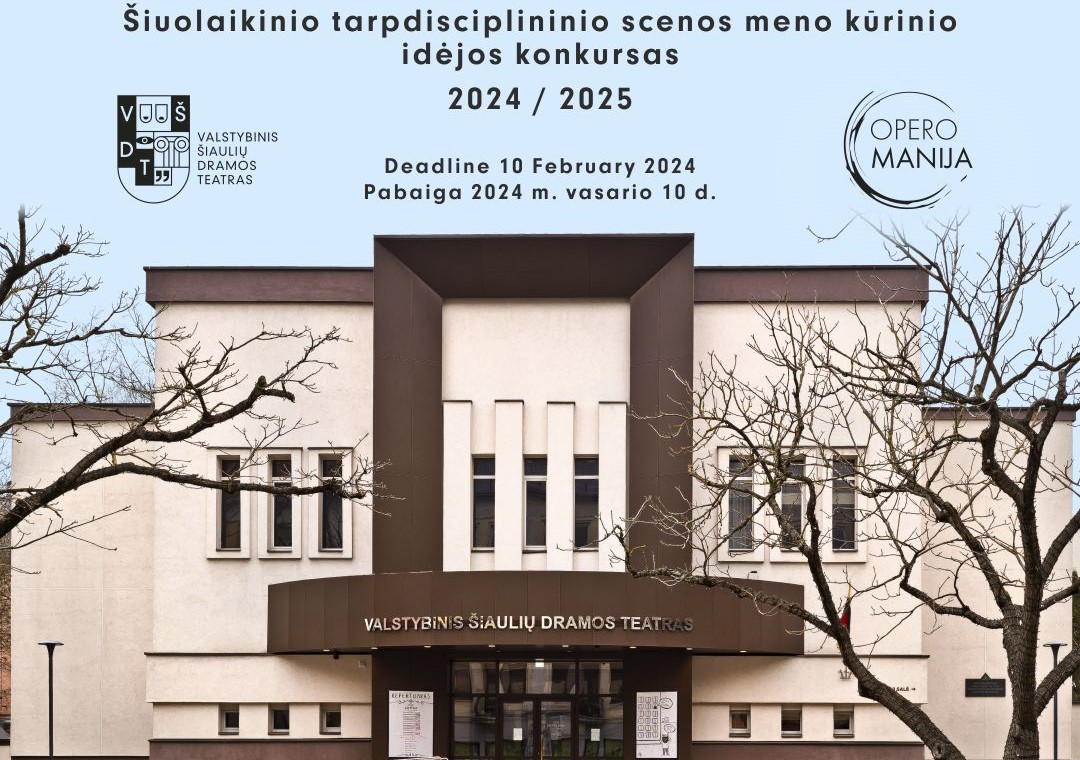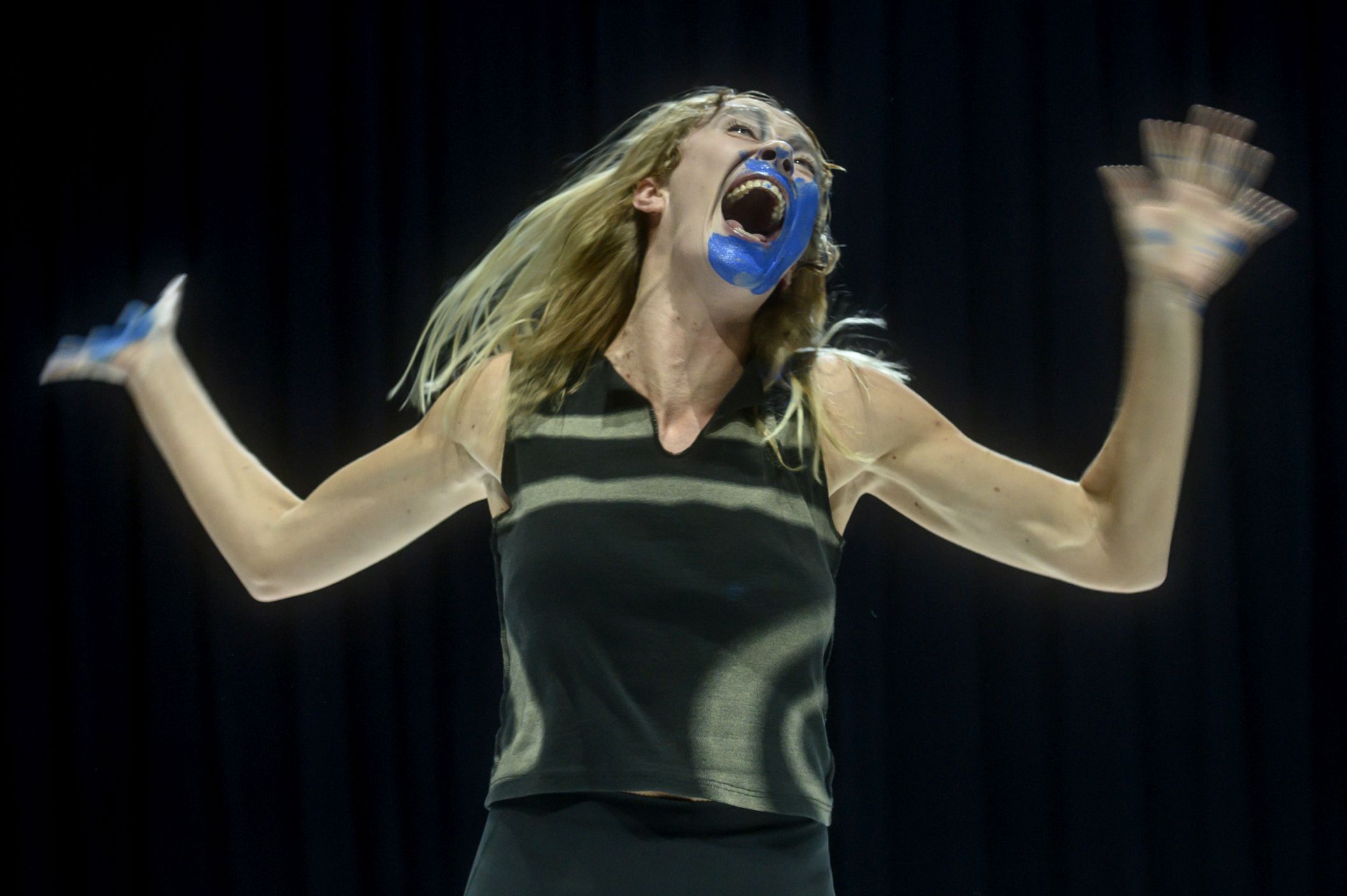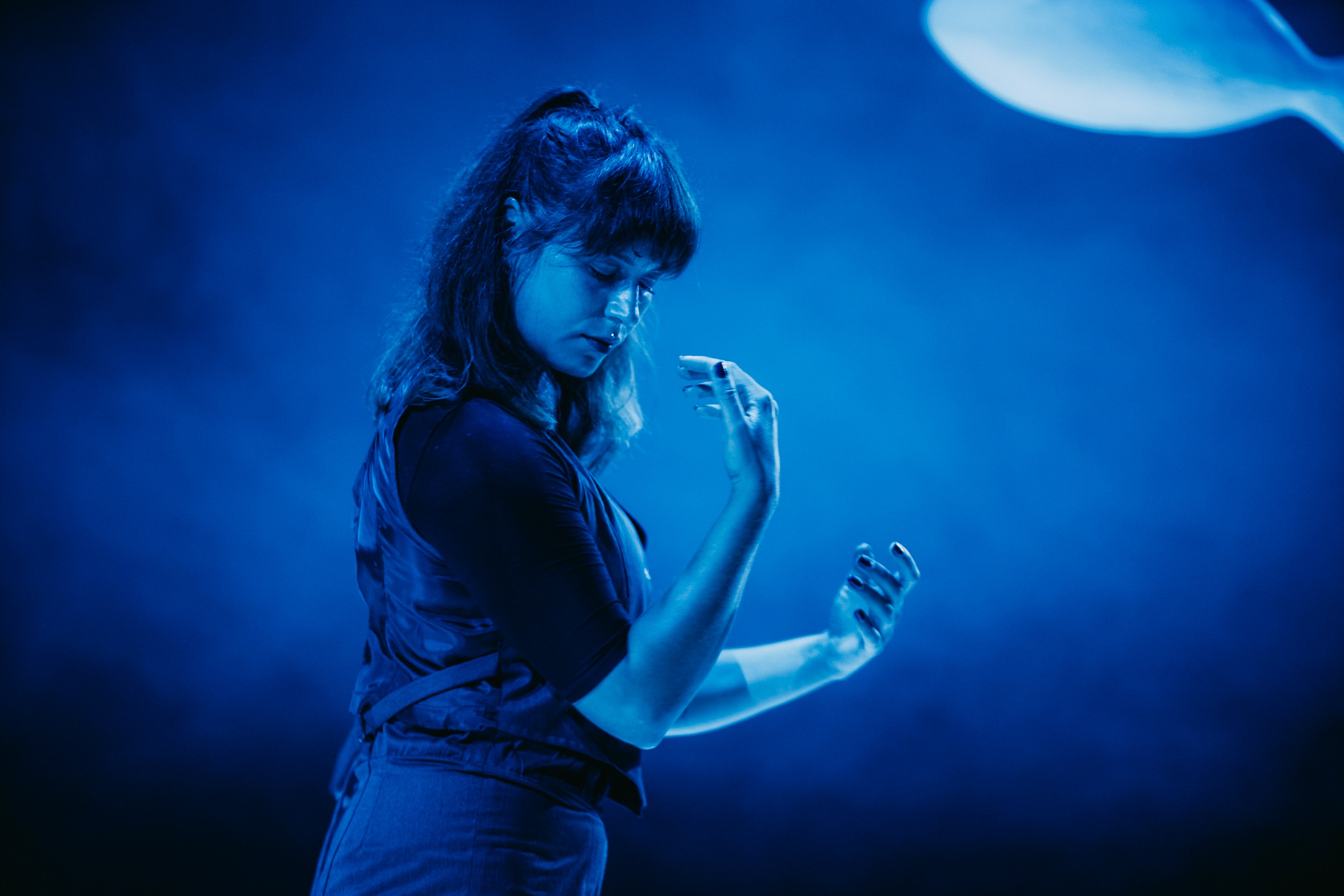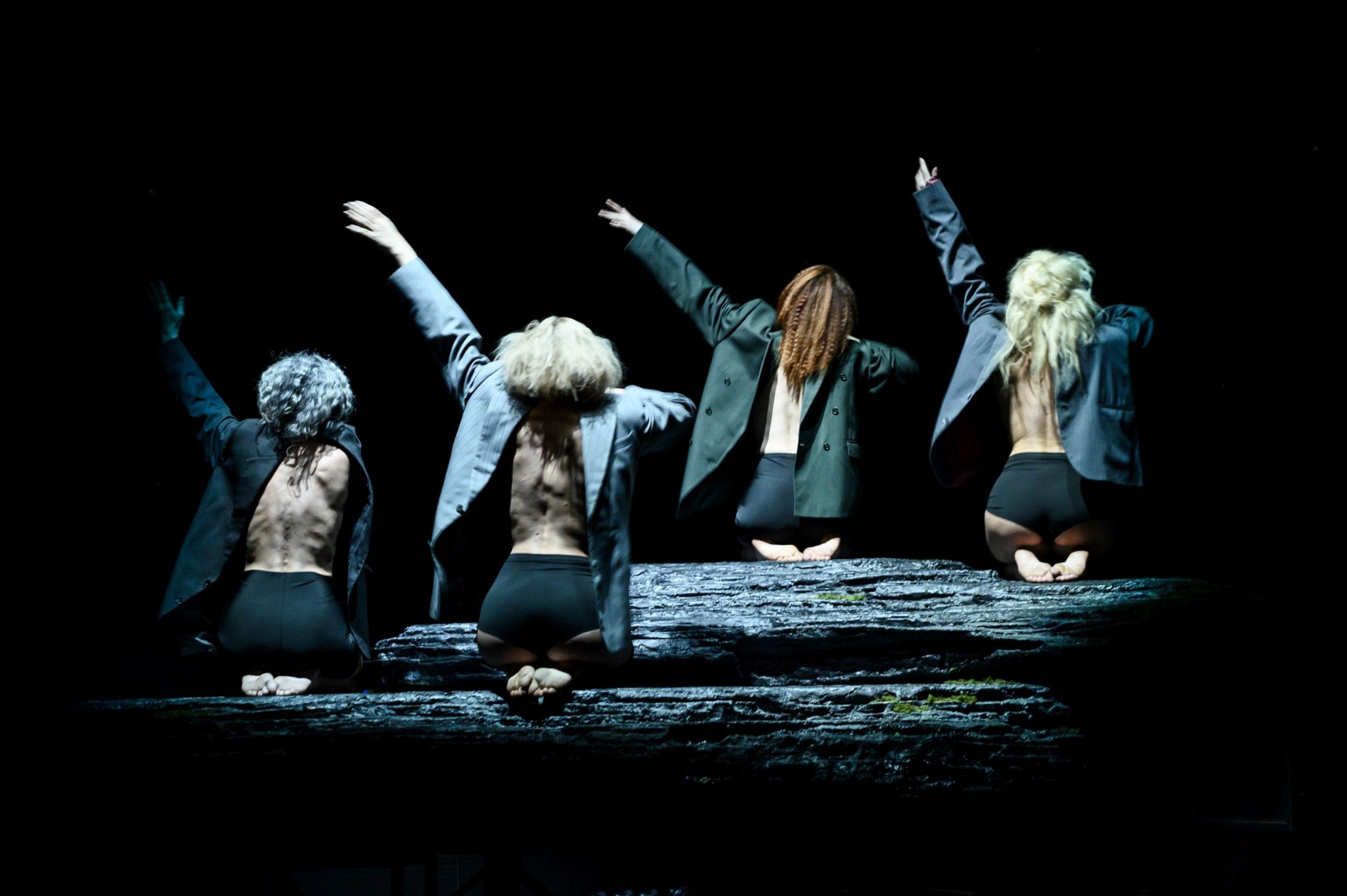
Around a decade ago, the metatheatre concept became quite popular on the Lithuanian stage. Theatre artists, mostly of the younger generation (under 35), started creating shows, and even writing plays, about the daily life of an actor: how a person becomes one, what future professionals expect, what they get, and how at the same time unexpected, sad and beautiful the actor's profession is.
Later, this trend died down. However, it recently came back in different forms. One of them was a few years ago, when actors and dancers started contributing their own personal stories as dramaturgical material. Although most artists reflected their personal lives, stories about their professional lives sometimes appeared, such as Who's not Afraid of Virginia Woolf by the actress Neringa Bulotaitė, who has been working at the Lithuanian National Drama Theatre (LNDT) since 1988 and has not yet created any famous role. The show expressed her fears, her personal experience, and her disappointment with herself, for not having the courage to stand up for herself and take on bigger roles. In that context, Bulotaitė's shouting out on stage in a solo performance looks like an important and daring step.
Due to the lack of a director, and because of the difficulties in reflecting the self, Who's not Afraid of Virginia Woolf was not of great artistic quality. But this is the opinion of a critic, and producers think differently: the production was moved from an independent institution, the Oskaras Koršunovas Theatre, to the LNDT, where Bulotaitė works.
I am using this example as a connection between the noticeable need of actors to talk about themselves directly (in the Lithuanian theatrical tradition, they usually talk from the point of view of the characters), and one specific direction which Lithuanian artists recently started taking. Young theatre directors started reflecting famous theatre artists, and even the general culture of the creative process in the country. And these examples are far better, in terms of quality, than those in which people share their own stories.
One of the best examples is the show The Island That Isn't There (Sala, kurios nėra), directed by Aleksandras Špilevojus. Having graduated in acting, he turned his hand to directing, and is now better known as a director. The show was put on at the Juozas Miltinis Drama Theatre, where he is artistic director.
It is important not only because it was one of the strongest productions of the season. Špilevojus has written a play based on the personality of one of the greatest figures in Lithuanian theatre history, the director Juozas Miltinis, who studied in France under Charles Dullin, and who created a professional theatre out of a troupe of amateurs in Panevėžys.
The figure of Miltinis is still adored by Lithuanian professionals who are familiar with the country's theatre history. This is despite the fact that Miltinis behaved like a despotic tyrant (proof of this can be found in recordings and actors' testimonies). His actors adored him as if he was a prophet of truly good theatre, which he actually was.
Even though a few directors have made references to the figure of Miltinis in their drama productions, The Island That Isn't There is the first attempt to openly deconstruct the 'cult' of Miltinis, showing him as a rather dubious personality. It is very cautious, but it is still an attempt, and it shows that the creative team at the Juozas Miltinis Drama Theatre are finally ready to recognise the true figure of a legend, and to move away from that to an independent path.
The Island That Isn't There shows two versions of Miltinis. The older one is played by Albinas Kėleris, and is clearly recognisable, with a smart suit, a beret, big glasses, a white beard, and confidence. He is a legend, and is still referred to by many of his long-term actors and staff. Indeed, for many years the creative team at the Juozas Miltinis Drama Theatre built their reputation not on the quality of the productions but on the historical pieces directed by Miltinis, because that was a time when Panevėžys offered Lithuanian and foreign audience some of the best shows in the country.
There is also the figure of the young Miltinis, played by Laurynas Jurgelis. He has created a very convincing character: self-assured and cocky on the surface, irritated by everything that's not worth his time (which is basically everything and everybody), an absolute hypocrite, and an artist who adores the theatre and values it more than he values people. And even though the character is still charming and attractive, the fact that he was publicly viewed as a dubious personality (in the director's own theatre!) is quite unusual for Lithuanian theatre culture.
In 2022, another show was created reflecting long years of creative processes in Lithuanian theatre culture. It was called The Silence of the Sirens (Sirenų tyla), and is one of two shows created by the young director Laura Kutkaitė. Moreover, it was her debut at the Lithuanian National Drama Theatre (she is currently preparing her second show there). The play was written by Teklė Kavtaradzė, a well-known Lithuanian playwright and dramaturgist, and tells several true stories about Lithuanian actresses who have experienced psychological, sexual and physical abuse at work or during their studies.
We can call this piece an ode to all the women who repeated (aloud, quietly, or without a sound) the words 'me too' during the outburst of the movement. The creators of the production have chosen to speak only from the point of view of women. The creative team includes hardly any men (except the director's assistant and the lighting designer). Thus, on the stage we see four sirens, women whose voices are dangerous to men, who therefore do whatever it takes to avoid listening to them.
Stories about abuse and violence against actresses follow one after another, reflecting society's tendency towards this kind of behaviour. Men commit violence, and their behaviour is supported by the environment, the women around them, people with experience of abuse, people who value business and glory more than the human being. The creative team revolves around a shared culture, and presents a show with 'a female gaze'. In the world of the show, most men are puerile idiots, who are praised just for being in their position and not for something they have done. This is an interesting way of portraying theatre society; however, it creates a problematic image for women as well. Seeing them succumb to and believe in such weak and stupid men makes us see them as hopeless losers who cannot do anything unless the men decide to treat them better. The stories behind the behaviour of specific women are not told in the show: maybe they were not even researched. And from a psychological point of view, it is already known that even though specific people and society are responsible for creating the conditions to abuse other people and get away with it, not all women get involved in abusive relationships. Every woman has the ability to deal with a lot (although not all, of course) of the situations she faces. And this is an important message, which was not brought out in the show. Women here are less like fighters and more like victims.
This is the view of a local spectator who is already aware of the situation that emerged in the show. Others see it differently. The Silence of the Sirens was invited to 'Fast Forward' in Dresden in Germany, a famous festival for young theatre directors, and won the Grand Prix. This might be a signal to international audiences to pay attention to the director Laura Kutkaitė and the creative team she has gathered around herself.
The Island That Isn't There and The Silence of the Sirens are two of the best examples of Lithuanian theatre history being reflected in contemporary Lithuanian theatre. For a foreign audience, it might be difficult to understand some ideas that create additional meanings for those who know the specific historical details. However, in them, history is used as a tool to address problems, which, sadly, are experienced in any culture. And the fact that the creators use material they genuinely find important makes the shows even more powerful.
-----
Publikaciją finansuoja Lietuvos kultūros taryba

